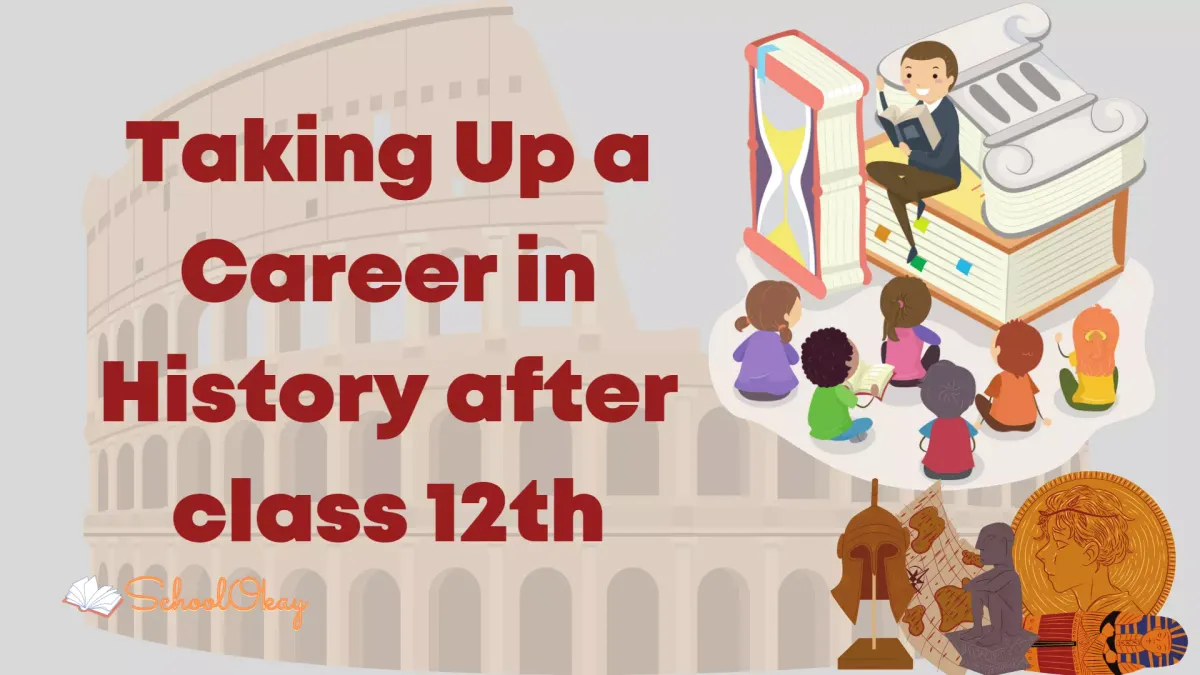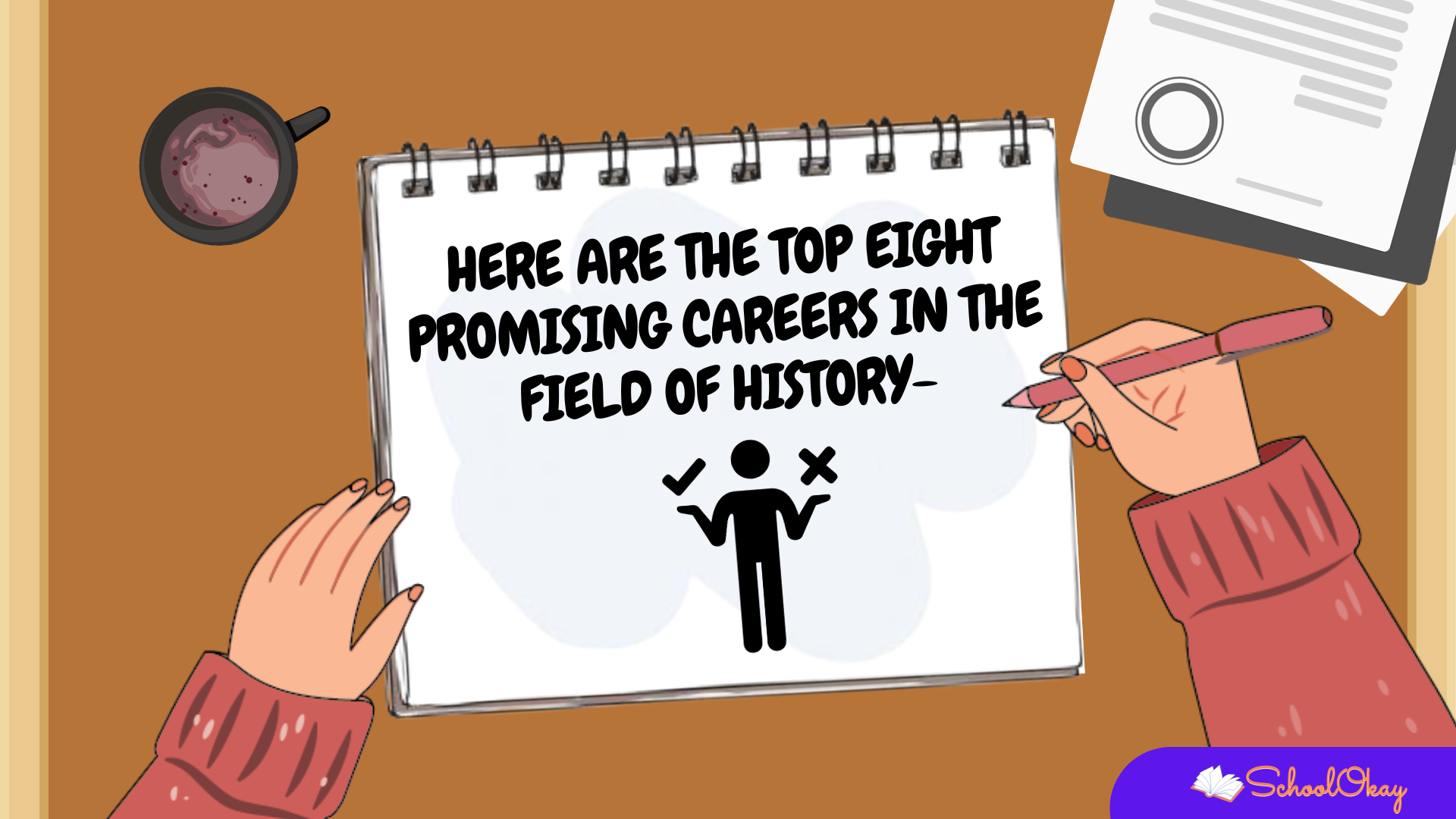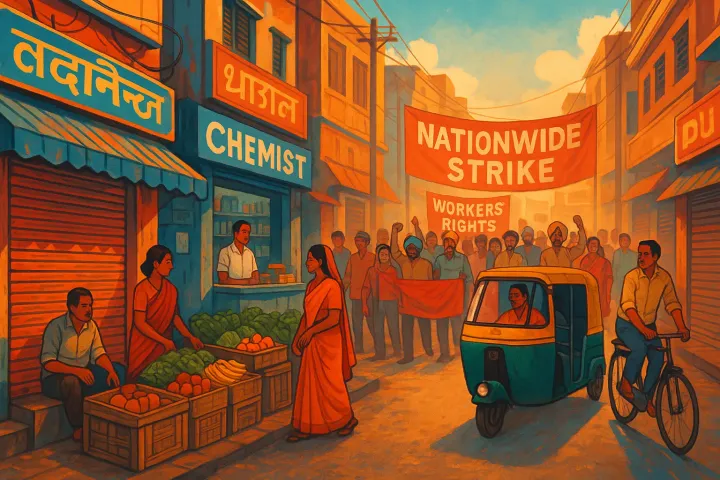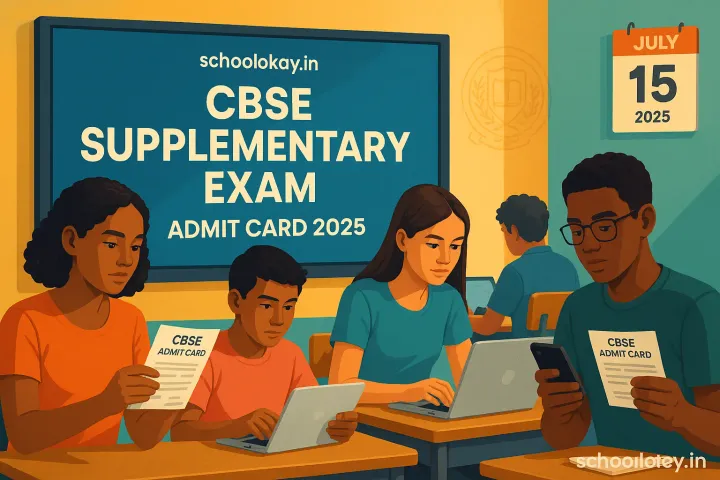Taking Up a Career in History after class 12th
Not many students have an awareness of the career options in history. here are taking up a career in history after class 12

How many students have heard why taking up a particular stream is more valuable than others? Humanities is still considered useless in terms of getting jobs and growing professionally. It is thought as if there is no scope in this field, and anyone in their senses would not consider taking it up in their life. History is one of the most neglected disciplines in the country. It is often prejudiced to be boring and worthless.
Many times those who say that humanities are not worth it have never even checked about it. It is not valid. The world is constantly changing, and with this evolving atmosphere, the scope of taking History as a career choice has gained many new dimensions. It is not limited anymore. However, its field and areas have expanded rapidly.
History after class 12th

One can take history as a subject after their 12th class. The essential eligibility criteria are that the students should have passed 10+2 from any recognized Board in any stream.
They should have secured 50% or more aggregate marks at the qualifying level. Mostly, there are no entrance tests for college admission, but there are certain exceptions. Some of the colleges that ask for an entrance test or an interview are-
1. St. Stephens College, Delhi
2. Jawaharlal Nehru University
3. Guru Gobin Singh Indraprastha University
4. Dayanand Sagar Vishwavidyalaya
History can be taken as an elective subject in B.A., or it can also be taken up as B.A. History Honours.
B.A. History is three years undergraduate course, which can be done in regular and distance modes.
Distance Universities like IGNOU offer B.A History Hons. With a bachelor's in History, further studies can be taken up in the same subject in the forms of M.A. History, MPhil History and so on.
Usually, the following is included in the undergraduate history syllabus-
- Ancient Indian History.
- Medieval Indian History.
- Modern Indian History.
- Post-modern Indian History.
- History of Europe.
- History of America.
- History of Asia.
Here are the top eight promising careers in the field of History-

1. Pursuing Research in the field of History

India, as a country, has a glorious past. Nationalism in India emerged as a result of people realizing the importance of heritage and its value in the development of India. The History of India can be divided into pre-history, proto-history and History.
While written documents are available for the historical period, many unknown and unsolved mysteries are the subject of research in the pre-history and proto-historical periods.
The Harappan script has not yet been deciphered, and with the ongoing politics of the country's past, research in History becomes extremely important in a diverse country like India. There is a need for dedicated efforts in writing an unbiased and foolproof history of the country.
2. Working as a historian

The job of a historian is to write History by analyzing the various sources available and giving it a proper form to give it meaning. Historians' work includes going through original documents, materials, gazetteers, etc., to reconstruct the past. The history textbooks and materials are a result of the historian’s work.
With the many issues brought up through politics, a historian's work becomes relevant, and a historian must be unbiased in this scenario. Whatever a historian researches becomes the line of truth.
Some famous historians of our time are Bipan Chandra, RS Sharma etc. Historians can choose any sub-fields of History to reconstruct, like military, cultural, economic, etc.
3. Pursuing the job of a writer

Studying History also has a promising career in the field of writing. Some of the significant emerging areas are historical journalism. Many magazines have special uniqueness dedicated to the history, which bring special, particularly for the public.
Besides magazines, many websites and publications require writers to focus on their history columns and pages. With the knowledge of History, one can also write books in both fiction and non-fiction. With the trends, many dramas and movies and script writing include historical advice to make them successful. Hence, History is also helpful in taking up writing as a career.
4. Working as an Archaeologist

The job of an archaeologist is to excavate material remains of the past and further use them as evidence to reconstruct History.
Archaeology is not limited to any stream. There are further aspects to the field of archaeology. There are archaeo-botany, archaeo-zoology and other related areas coming up. Apart from the subfields of archaeology, one can also specialize in its related associates like numismatics and epigraphy.
It is not only a field job but also includes some research. The recruiters include the Archaeological Survey of India and the various State Archaeology Departments and heritage and research institutions.
5. Museologist/Museum Curator

Museologists and museum curators are appointed by the various museums and heritage and research institutions for the upkeep and maintenance of the multiple museums.
The job requires organizational skills, good communication skills, and an aesthetic bent of mind. As a curator, it becomes essential to understand and value the History and heritage of the country. Museums are not just storehouses; they contain evidence of how civilization came and went.
Related to the work of a museologist is the profession of an archivist. The job requires precision as the worker has to deal with fragile manuscripts and writings of historical importance. They are primarily concerned with the upkeep, recording, organization and management of historical documents. Their workspaces include the National and State Archives Department, libraries and museums.
6. Need for History Scholars in the Tourism Industry

The need for history enthusiasts and workers has become important with the growing tourism sector. To explain the places, buildings, and structures of historical importance, there is a requirement for scholars' History.
It is also essential to make an account of the heritage and historical structures for which historians are required.
Management and maintenance of such structures are also important jobs. Sometimes, there are paintings and perishable elements that experts can only handle. Such features required proper and professional assistance from scholars.
Besides the monuments and structures, helpful guides training must be done to impart the correct information to the tourists about the city and monuments.
Information needs to be processed and verified by those with proper knowledge and understanding of History.
7. Teacher/Professor of History

There is also scope in the field of teaching after taking up History. With a B.Ed., one can be an elementary teacher. If one clears the UGC NET exam, there is the scope of being an assistant professor in the same field. History needs to be understood as a discipline.
Accurate and verified information has to be imparted, and at the same time, students need to be encouraged to take up History for further studies.
Prejudice against History as a subject need to be reduced and this can only be done by teachers and professors who teach the subject. Students' interests can be improved by organizing field trips and museum visits.
8. History as a valuable subject for Competitive Exams

History is an essential component of any government employment exam. With expertise in history, it becomes easier to understand and crack the parts in such exams and tests.
In the UPSC CSE examination, for example, history is a significant part of the syllabus, and it is nearly challenging to crack the exam without knowing it. History is also closely linked with political science and general knowledge, meaning knowing History would make studying subjects easier.
Conclusion
Unlike the common understanding and bent of mind, history has more scope and opportunities. History is just about memorizing dates and events but includes much more than that. It improves one's critical thinking, analytical skills and aesthetic sense.
Most importantly, it makes one aware of the country's rich cultural and historical heritage, which most of us are deprived of. It is time to break the prejudices and develop this much-neglected field.
Also read:
Teaching as a career in India.
10 best decision-making books you can read this year.
Top 10 arts colleges in India.
Share and subscribe to the blog by email.




Comments ()